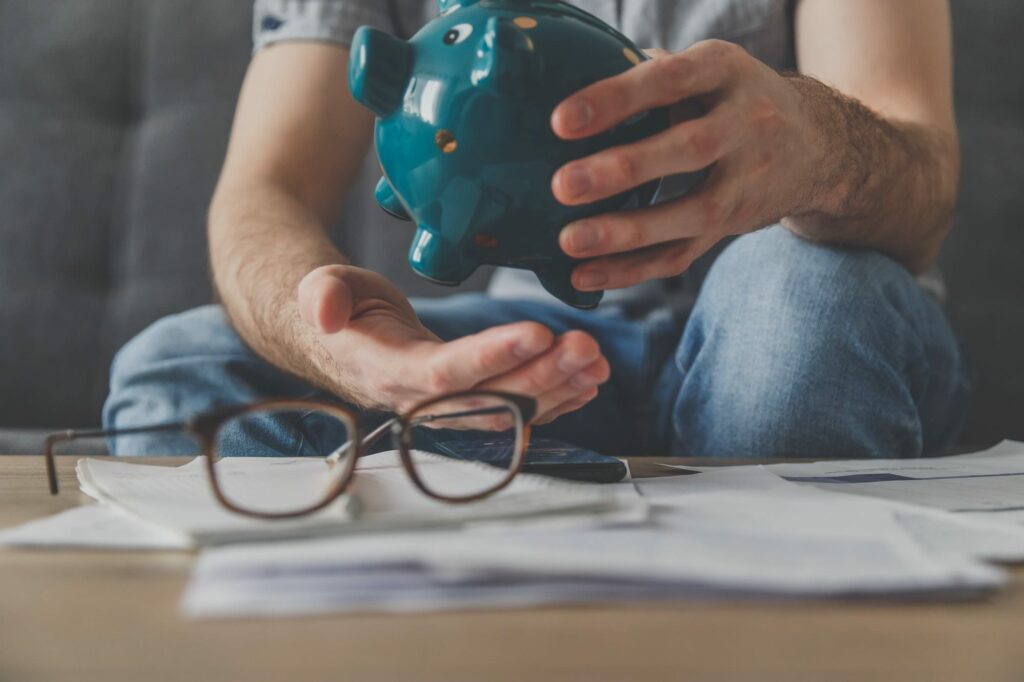
If you’ve lost your job in the past few weeks, you’re not alone. The COVID-19 pandemic is having a serious impact on people across the country and the globe. It’s estimated that millions of Australians could lose their jobs.
Whether you saw it coming or you were caught off guard, losing your job during this crisis isn’t easy. Now that you’ve lost your main source of income, you may have to start dipping into your savings.
If you’re facing financial hardship after losing your job, what can you do about it? How can you stay afloat?
Let’s take a closer look at how to use your savings wisely once you’ve lost your job.
1. Take a Look at Your Budget
When you’re facing a financial crisis, the first step is to take a hard look at your current budget. Start with your sources of income:
- Savings
- Unemployment benefits
- Stimulus payment
- Other government benefits
Then, determine how you’re going to spend your money. Create a weekly and monthly budget to cover necessities like bills, utilities, rent, and groceries. Assign an amount to each area and stick with it.
2. Tap Into Emergency Money
Whether you’ve spent months or years working on your savings, you put aside emergency money for a reason. Hopefully, you’ve managed to save up enough to cover rent, food, and the other expenses that your paycheck would normally cover. The average emergency fund can cover anywhere between two and six months of expenses.
Even if it’s just rainy day savings, now is the time to tap into that money.
Just make sure you’re tapping into the right form of savings. When the cash flow dries up, you might be tempted to start finding other ways to pay the bills.
Don’t use retirement money unless you’re in dire straits. And try your best not to rack up debt on a credit card instead. It’s worth using the money you already have, even if it means you emerge from this crisis with little left in your savings—you can always start saving again.
3. Cut Down on Unnecessary Spending
Once you’ve lost your job, there are certain sacrifices you might have to make. As soon as you can, cut down on items that aren’t necessities. For example:
- Cable television
- Restaurant dining
- Unlimited data plan
- House cleaning services
- Landscaping services
- Streaming or music subscriptions
- Personal spending
Remember, you need to be brutally honest with yourself about what you need and don’t need. Quickly eliminate any costs that you can live without for now.
During social isolation for COVID-19, many of these spending items—like eating out at restaurants—aren’t feasible anymore. This should naturally cut down your spending and allow you to allocate more funds for needed goods.
4. Focus on Bills
Once you’ve got your budget in order, now you might be wondering how to spend your savings. Your next priority should be taking care of the bills.
Make all minimum payments on credit card bills, rent, utilities, and more. But if you have enough in your savings to do so, you should consider paying more than the minimum or even paying your balance in full. This might not always be possible, but it can save you from a tough spot by ensuring that you won’t rack up late fees and penalties.
5. Seek Financial Help
Losing your job can be a jarring experience, but it’s not your fault. You’re also not the only one going through this.
Don’t hesitate to seek help through various sources. Whether it means applying for unemployment or accepting a stimulus check from the government, there are resources out there to support you doing this difficult time.
These resources can help lessen the blow of both COVID-19 and the sudden loss of your job. It might not be a lot of money, but it might just be the push you need to make it through to the end.
6. Take on a Side Hustle
In the end, your savings can only take you so far. If you find yourself needing some extra cash to make it through the end of the month, consider taking on a side hustle to help offset those expenses.
While social distancing keeps many confined at home, there’s still no shortage of online jobs you can take on. Whether you’re freelancing, doing surveys online, or even selling some of your old stuff through a website, there are ways you can increase your income, even without a job.
7. Take a Deep Breath
The most important part is to not panic. Take a deep breath and let everything sink in.
Losing your job was completely out of your control, but that doesn’t mean you don’t have control over your financial future. Don’t let your anger, despair, or panic consume you in the days and weeks after your job loss. You prepared for this. Your savings and emergency funds are here for this exact circumstance—an emergency.
How to Use Your Savings After Sudden Unemployment
These are uncertain times, but that doesn’t mean your finances have to be. Whether you’ve saved up a small amount or you have a formidable emergency fund, you can harness your savings to get ahead of the crisis.
Unemployment can be extremely draining, but just remember that this hardship is always temporary. With these tips and strategies, you can learn how to use your saved money and maximize your budgeting to make the most of your situation. With a few resources and a bit of support, you can weather the storm and come out stronger in the end.
Ready for a tax refund or stimulus check relief? You’ll need to make sure your taxes are in order first. Sign up today to complete your tax return in as little as 10 minutes.


